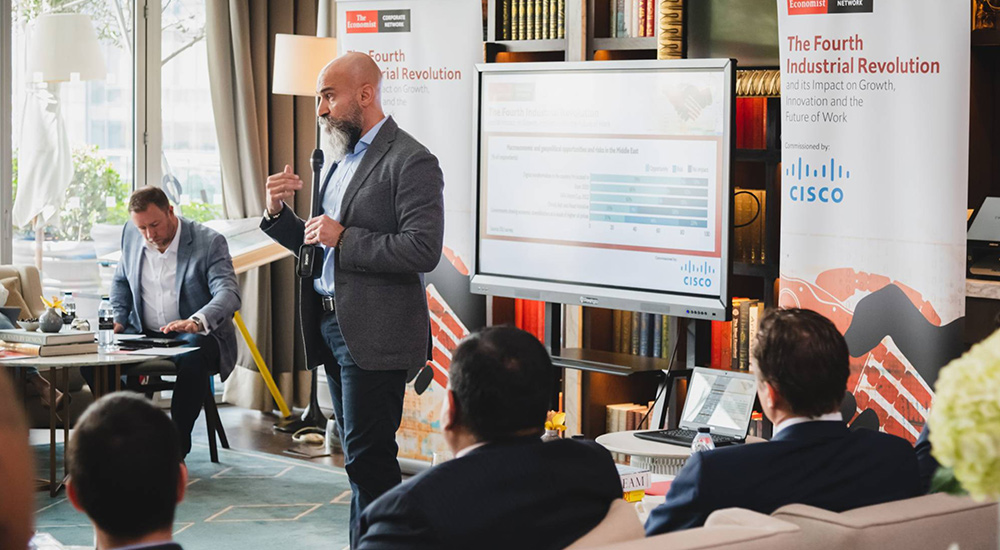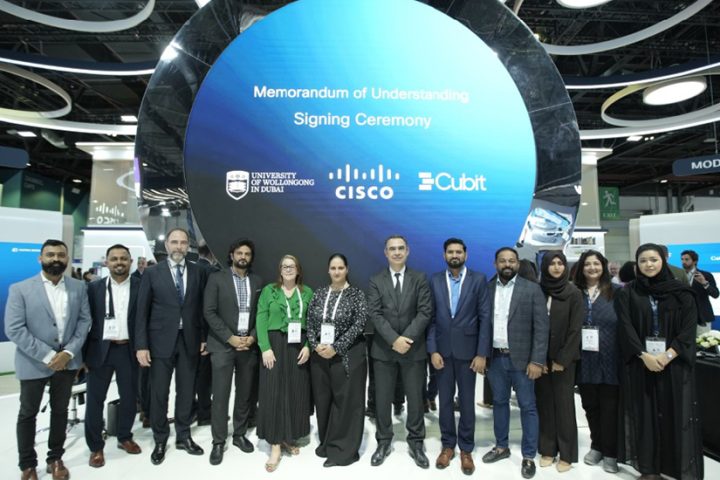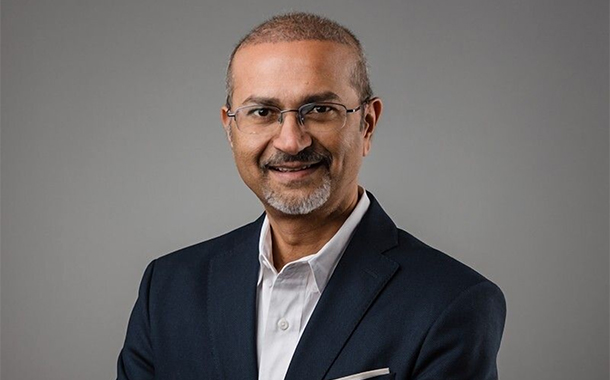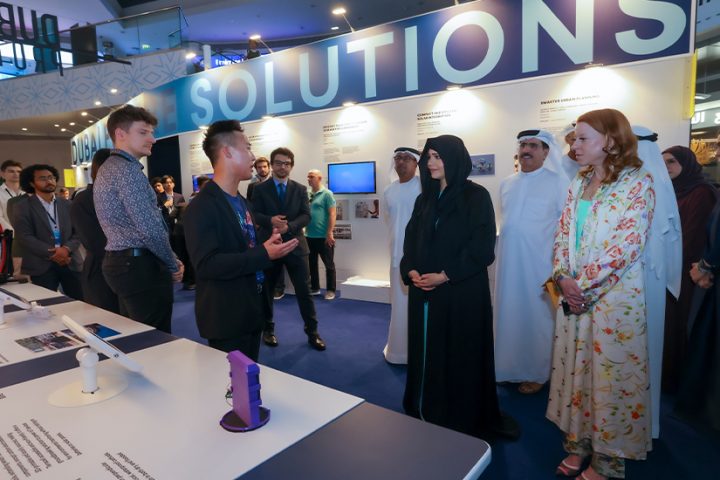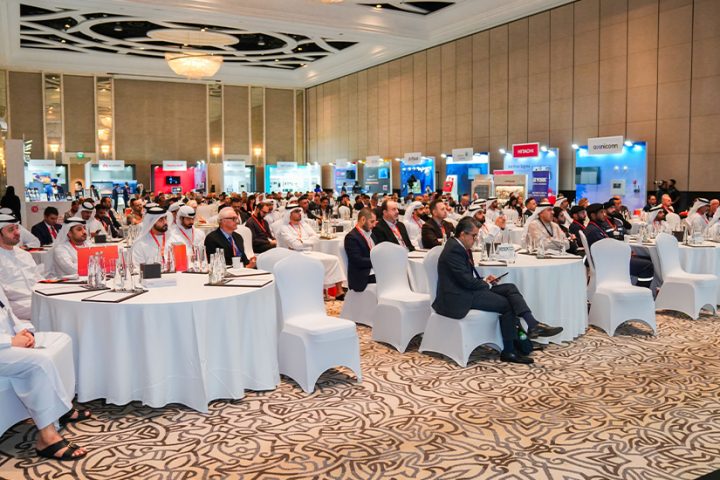Business leaders and governments in the Middle East must leverage the potential of the Fourth Industrial Revolution, 4IR, to have a positive impact on GDP, innovation and the future of jobs, according to findings from a new report from the Economist Corporate Network, commissioned by Cisco.
Titled The Fourth Industrial Revolution: Its impact on Economic Growth, Innovation and the Future of Work in the Middle East, the report is the result of an executive roundtable discussion, hosted by The Economist Corporate Network, ECN, The Economist Intelligence Unit’s, EIU, advisory service for organisational leaders.
The event, supported by Cisco, brought together over 20 Middle East business leaders from different industries to explore 4IR and discuss issues such as the regulation of new technology, entrepreneurship, skills development, and economic first-mover advantage. 78% of business leaders surveyed by The EIU said that among all the macroeconomic and geopolitical factors affecting the Middle East today, digital transformation presents the greatest opportunity.
The report highlights the three key areas where 4IR will present opportunities and challenges:
Economic growth
The report highlights that digital transformation may be a key driver for economic growth, with mainly startups leading this growth. This may mean that for countries to enjoy maximum growth, startups will need to be empowered, and established enterprise will need to act more like startups or acquire startups to accelerate and innovate. 4IR may also create economic advantage for first mover companies in certain industries.
Innovation
The report suggests that organisations should adopt a more innovative stance, including becoming more agile and experimenting with technology to gain the most from 4IR rather than putting too much stake in large-scale technology-driven projects. While achieving this change to internal processes and mindset is one of the biggest challenges of digital transformation, changing culture will create more value than a narrow focus on one technology initiative.
For regions like the Middle East that are still catching up to technology leaders, organisations should also count incremental improvements as innovations, and look to digital transformation to create innovative products and services that can be delivered to neighbouring markets.
Future of work
The report highlights that 4IR may create an increase in jobs, introduce more interesting and creative jobs, and may eliminate the need for humans to carry out some repetitive or risky jobs. However, this will require retraining and reskilling of workforce to address the opportunities. A sample of Middle East business leaders shows that they believe reskilling is the responsibility of the individual, but government and education should be ready to support the changing requirements of the workplace. Life-long learning, entrepreneurship and flexibility will become more important than qualifications focused on specific sectors, because more people will have multiple careers throughout their lifetimes.
The report also highlights some of the barriers to further adoption of 4IR technologies and transformation. The high capital cost of new technology is cited by 47% of respondents to an EIU survey as being among the main impediment to adoption of advanced technology. Data protection and cybersecurity concerns listed as an issue for 35% of respondents, and shortage of inhouse skills to implement and run advanced technology were a concern for 34% of respondents. Limited understanding of advanced technologies among senior management, and data privacy concerns were both issues for 29% of respondents.
Shukri Eid, Managing Director, Gulf Region, Cisco commented: “The Fourth Industrial Revolution presents a huge opportunity for organisations across the region, to utilise smart technologies, transforming their operations and creating new value. In order for the Middle East to truly benefit from 4IR, government and business decision makers need to understand the impact that digital transformation will have on society as a whole. At Cisco, we are committed to assisting in enabling executives across sectors to tap into these opportunities and develop approaches that will create lasting value.”

